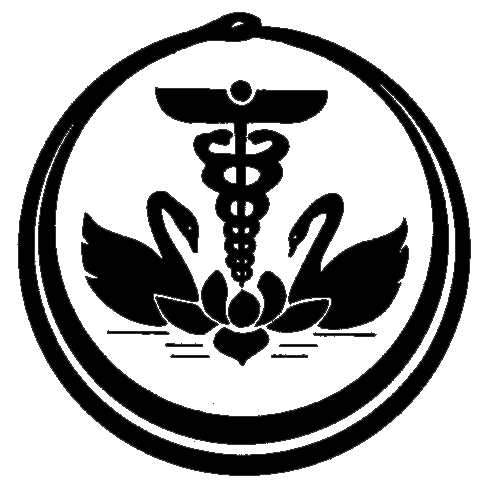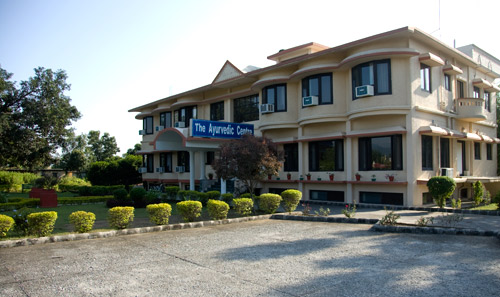


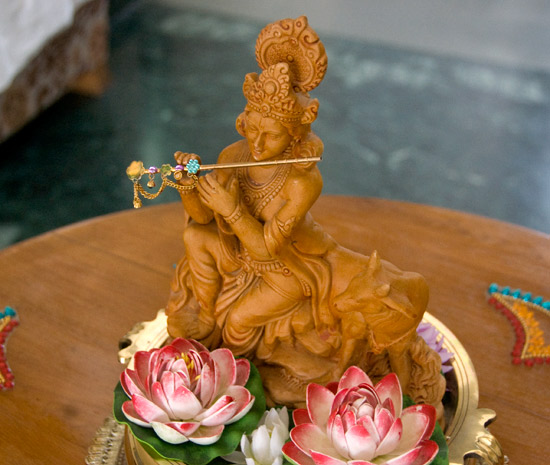
The Ayurveda Centre
Relax, Renew, Rejuvenate with Pancha Karma
“Every human being has potentials for healing. The healing energy is flowing without interruption in every human heart. By the right use of the dynamic will, these channels of healing energy can be directed to the suffering parts of the body and mind.” Swami Rama
Blog
Doshas
Part 2 Pitta Pitta is derived from the word Tap which means heat. It is the force that transforms all biotransformation’s. It is responsible for digestion, metabolism and other transformations in the body. It is also responsible for the complexion, lustre, intellect...
Doshas
Ayus, or life, is the harmonious union of the body (Sareera), senses (Indriyas), and mind. Whenever there is any imbalance to this union diseases are caused or even death. Sareera, or the body, refers to what decays. Our body is always undergoing transformation. These...
Trikatu
In Ayurvedic Literature Trikatu holds a a very important place. The word Trikatu is derived from Sanskrit where Tri means three and Katu means spicy or pungent. It is also known as Vyosh, Tryushna or Katutraya. It contains Pippali or long pepper, (Piper longum), Kali...
Dietary Rules According to Ayurveda
The great Ayurvedic physician Acharya Charak has explained about the disciplined dietary guidelines as Aahar vidhi vidhan. It is a set of guidelines for having food and liquids, helping people to achieve proper digestion, assimilation and overall health. It can help...
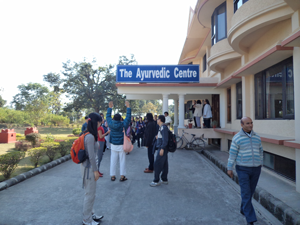 Ayurveda has two equally important domains known as Swasthavritta (social & preventive) and Aturavritta (treatment of diseased) which keeps us in a good state of health during normal health situations and restores the equilibrium of doshas by different modalities of treatment respectively. It is not merely a medical science but the science & art for appropriate living with a clear concept of consciousness, intellect, mind and body which helps to achieve health, happiness and longevity. It emphasizes on preventive and healing therapies along with various methods of purification and rejuvenation. The Ayurvedic Centre is located in the green and serene atmosphere of the Himalayan institute campus. Nature and tradition are in perfect harmony at this legendary locale.Keeping Swami Rama’s vision of an integrated health service provides a comprehensive residential Panchkarma therapy programs in the Ayurvedic Centre. The Centre offers its services under an expert team of Ayurveda practitioners well supported by qualified and well-trained paramedical staff. The Ayurvedic Centre is an expression of Swami Rama’s Holistic health module and is a perfect place for healing and strengthening of the mind, body and spirit connection. This is based on preventative, curative and restorative therapies focused on patient centered health care. The Ayurvedic system of medicine pays equal attention to detoxification, the treatment of disease and revitalization of the body and mind.
Ayurveda has two equally important domains known as Swasthavritta (social & preventive) and Aturavritta (treatment of diseased) which keeps us in a good state of health during normal health situations and restores the equilibrium of doshas by different modalities of treatment respectively. It is not merely a medical science but the science & art for appropriate living with a clear concept of consciousness, intellect, mind and body which helps to achieve health, happiness and longevity. It emphasizes on preventive and healing therapies along with various methods of purification and rejuvenation. The Ayurvedic Centre is located in the green and serene atmosphere of the Himalayan institute campus. Nature and tradition are in perfect harmony at this legendary locale.Keeping Swami Rama’s vision of an integrated health service provides a comprehensive residential Panchkarma therapy programs in the Ayurvedic Centre. The Centre offers its services under an expert team of Ayurveda practitioners well supported by qualified and well-trained paramedical staff. The Ayurvedic Centre is an expression of Swami Rama’s Holistic health module and is a perfect place for healing and strengthening of the mind, body and spirit connection. This is based on preventative, curative and restorative therapies focused on patient centered health care. The Ayurvedic system of medicine pays equal attention to detoxification, the treatment of disease and revitalization of the body and mind.
 Everything is planned very carefully so that visitors will look forward to come back to receive our specialized treatments. Stunning interiors, fabulous ambiance and its available services, each thing add on bliss to this centre. We have well furnished room with AC facility. We serve wholesome vegetarian cuisine in our dining hall which is cooked in completely hygienic condition. Diet is a very important part of your treatment and our vegetarian meals are light, well balanced and healthy, with a minimum fat, spices and sugar. We have a nice yoga hall where yoga sessions are carried out in morning & evening. We have tried to incorporate simple yoga exercises in the daily routine so you can feel more relax. You can have morning/evening walk on a nice track of HIHT garden surrounded by trees, bushes and flowers. We have a nice lawn in front of Ayurvedic Centre where you can sit and relax during free time. Wi-fi facility is available in the campus and can be provided on request. Laundry service with charge is also available in the building. A branch of State Bank of India, daily needs shop and phone booth is available inside the Institute campus.
Everything is planned very carefully so that visitors will look forward to come back to receive our specialized treatments. Stunning interiors, fabulous ambiance and its available services, each thing add on bliss to this centre. We have well furnished room with AC facility. We serve wholesome vegetarian cuisine in our dining hall which is cooked in completely hygienic condition. Diet is a very important part of your treatment and our vegetarian meals are light, well balanced and healthy, with a minimum fat, spices and sugar. We have a nice yoga hall where yoga sessions are carried out in morning & evening. We have tried to incorporate simple yoga exercises in the daily routine so you can feel more relax. You can have morning/evening walk on a nice track of HIHT garden surrounded by trees, bushes and flowers. We have a nice lawn in front of Ayurvedic Centre where you can sit and relax during free time. Wi-fi facility is available in the campus and can be provided on request. Laundry service with charge is also available in the building. A branch of State Bank of India, daily needs shop and phone booth is available inside the Institute campus.
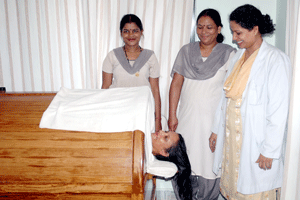 The Ayurvedic Centre offers the whole range of Panchakarma treatments along with various other treatments like abhyanga, sarvanga sweda, nadi sweda, shirodhara, shirobasti, navarakhizi, avagaha sweda, katibasti, manyabasti, hridabasti, Pizzichil, netratarpana, shirolepa, pichu and udvartana etc.
The Ayurvedic Centre offers the whole range of Panchakarma treatments along with various other treatments like abhyanga, sarvanga sweda, nadi sweda, shirodhara, shirobasti, navarakhizi, avagaha sweda, katibasti, manyabasti, hridabasti, Pizzichil, netratarpana, shirolepa, pichu and udvartana etc.
Who will benefit from these programs
Patients with chronic diseases like rheumatoid arthritis, osteoarthritis, ankylosing spondylitis, sciatica, neurological disorders, Parkinson’s disease, asthmatic bronchitis, hypertension, migraine, irritable bowel syndrome, acid peptic diseases, infertility, impotency, geriatric problems and psychosomatic diseases.
People suffering from the diseases which are usually not responding to conventional western medicine People with stress related disorders such as anxiety, depression, tension headache, fatigue and feeling low energy levels People with problems of obesity or anorexia Healthy people seeking of greater sense of well being and fulfillment People who want to start yoga and meditation practices (to clean and prepare the body for these practices) Cancer patients after surgery/ chemotherapy/ radiotherapy for detoxification
Treatments Offered
 Ayurvedic consultants design a particular treatment plan according to the need of patient based on the initial evaluation and thorough clinical examination. Every day before commencement of therapy patient have an appointment for consultation with his treating physician. In order to maintain health, to enhance wellbeing, to heal, to rejuvenate and to increase longevity, the following programs are offered by Ayurvedic Centre.
Ayurvedic consultants design a particular treatment plan according to the need of patient based on the initial evaluation and thorough clinical examination. Every day before commencement of therapy patient have an appointment for consultation with his treating physician. In order to maintain health, to enhance wellbeing, to heal, to rejuvenate and to increase longevity, the following programs are offered by Ayurvedic Centre.
Ayurvedic consultations and treatments Residential Panchkarma Therapy Program Osteopathy Dietary consultation Diaphragmatic Breathing Systemic relaxation Joints & Glands exercises Counseling
Osteopathy is a system of diagnosis and treatment for a wide range of medical conditions. It works with the structure and function of the body, and is based on the principle that the well-being of an individual depends on the skeleton, muscles, ligaments and connective tissues functioning smoothly together.To an osteopath, for your body to work well, its structure must also work well. So osteopaths work to restore your body to a state of balance, where possible without the use of drugs or surgery. Osteopaths use touch, physical manipulation, stretching and massage to increase the mobility of joints, to relieve muscle tension, to enhance the blood and nerve supply to tissues, and to help your body’s own healing mechanisms.
Additional facility for executive health check up and investigations are available in the main hospital on request after discussion with their treating physician.
The Ayurvedic Centre offers the whole range of Panchakarma treatments along with various other treatments like:
Panchakarma is a unique mode of Ayurvedic therapy which has both preventive and curative aspects. Panchakarma constitutes the Shodhana Chikitsa which is an Ayurvedic rejuvenation treatment since it not only eliminates the toxins causing diseases but also replenish the tissue with nourishment. Department of Ayurvedic medicine has a well-equipped Panchakarma centre located in the green and serene atmosphere of the Himalayan Institute campus in a pristine ambiance. It offers its services under an expert team of Ayurveda practitioners well supported by qualified and well-trained paramedical staff. The name Panchakarma is derived from two Sanskrit words. “Panch” means “five” and “Karma” means “Action.” The name denotes five primary procedures of cleansing which Ayurveda uses to purify the body . The five-purifactory procedures are: 1) Vaman (Induced Emesis) 2) Virechan (Induced Purgation) 3) Niruha Basti (Decoction Enemas) 4) Anuvasna Basti (Oil Enema) and 5) Nasya (Nasal medication). Panchakarma therapy is always performed in three stages – Purva Karma (pre-treatment), Pradhana Karma (main treatment) and Pashchat Karma (post treatment). Purva Karma includes two preparatory procedures before the main panchakarma procedures. These therapies are used to dislodge the toxins from the inner sites and help them in eliminating by the main 5-panchakarma procedures. These are: Snehan (Oleation) Swedan (Fomentati Snehan (Oleation). This therapy employs administration of medicated oils either internally or externally. There are various types of external application of the medicated oils, depending on the parts of the body involved and type of the massage performed. The external application of oil is called Abhyanga or ayurvedic massage. A whole body massage with specific Ayurvedic oils to nourish and revitalize the body tissues (Dhatus) and to allow the toxins to be removed from the cells. Abhyanga not only loosen the toxins but helps in achieving deepest healing effects by naturally harmonizing the Body – Mind & Spirit. It is carried out in silence, which helps to harmonise various functions of the body. Silence and rest are two important components in the process of activating the body’s own self-healing mechanisms. This massage is performed symmetrically with synchronized movements by the help of two well-trained panchakarma therapists and is usually followed by a medicated steam bath (Swedana). It is one of the most rejuvenating treatments of Ayurveda. Benefits: Increases tissue strength, improves blood circulation, rejuvenates the whole body, removes the cellulite, beautifies the skin, delays aging, induces sound sleep, promotes vitality, pacifies Vata imbalance, reduces stress and removes toxins. Swedan (Herbal Fomentation): This refers to the remedy that involves application of heat in various ways to make the patient sweat. It is second major form of the preparatory procedures. Among 13 types of swedan Nadi sweda and Vashpa sweda are used as Panchakarma preparatory procedures. The vapors dilate and soften the channels of the body allowing the impurities to move out. Herbal steam specific to the ailment or vitiated dosha is administered which opens the pores, dislodges the toxic materials, making them subtler and flushes the system. In addition to this it reduces the body’s stiffness. Benefits: Reduces pain in the body, eliminates toxins, promotes lightness, reduces stiffness, beautifies the skin, removes the Cellulite. Pradhana Karma: Following snehana and swedana, the aama (toxins) comes in to the koshtha (Gastrointestinal system) from where these can be eliminated by main Panchakarma procedures, i.e, vamana, virechana, anuvasana basti, niruha basti and nasya. Vamana It is a medicated emesis therapy, which specially cleans Kapha toxins collected in the body and decongests the respiratory tract. In preparing for vamana, one sets up the conditions in which it can occur spontaneously. Various Ayurvedic decoctions are used for inducing vomiting. Whole procedure is performed cautiously under the supervision of physician with proper care. Virechana is a medicated purgation therapy used in the conditions associated with Pitta imbalance. It removes accumulated Pitta toxins from the liver, gall bladder and small intestine and cleanses the gastro-intestinal tract. In this procedure herbal preparations are administered orally to increase bowel movements for bringing toxins out from the body with defecation. A person undergoing virechana may have many bowel movements depending upon the nature of koshtha and toxins. It is a safe procedure and effect is obvious. Basti is the mildest and safest detoxification therapy recommended for a wide variety of illnesses and considered one of the most important aspects of treatment. According to Maharshi Charak it is 50% of all the therapies. It cleanses the accumulated toxins from the colon and is choice of treatment for the diseases caused by imbalance of vata. Vata is the most active principle in pathogenesis. Balancing Vata may treat the root cause of most of the diseases. It improves the absorption, stabilizes vata & is highly beneficial as a rejuvenating treatment also. Medicated oil or ghee and an herbal decoction are given as enema to clean the colon and increase the muscle tone. Nasya: Administration of medicated oil through the nose is called Nasya. Nasya is particularly useful in the treatment of diseases occurring in the organs situated above the clavicle. It cleanses accumulated Kapha toxins from the head and neck region and promotes the functions of the sensory and motor organs above the clavicle. Nasya is said to stimulate the base of the brain through its effect on the olfactory nerve endings bringing greater clarity and balance to the mind, brain and senses. It specifically provides strength to the head, nose and neck. Indirectly it works on the whole body by improving the functioning of the endocrine glands. It prevents premature wrinkling, graying and falling of the hair. Paschat Karma: Advise for proper diet, life style, health promoting and disease specific drugs comes under the Pashchat karma. Navarakizhi is a special massage, which rejuvenates the body. A highly effective rejuvenation technique using a special type of rice that is cooked tied into boluses and dipped into an herbal decoction and warm milk. Medicated oil is first applied liberally over the patient’s body. Then the body is massaged with small linen bags filled with cooked Navara rice. The rice is cooked by boiling it in cow’s milk along with suitable herbs. The linen bags filled with rice are dipped in the same mixture kept boiling and applied by massage therapist at a comfortable temperature over the whole body. Body perspires and releases toxins through this treatment. This treatment improves complexion of the skin and restores vigor. This therapy endows several benefits to a healthy individual as well as to the person suffering from musculoskeletal disorders, degenerative conditions and neurological problems etc. The boluses made up of rice, herbal powder and herbal leaves used in the treatment are called Njavarakizhi, Choorna Kizhi and elakizhi respectively. Shirobasti is yet another efficient treatment method in which oil is retained on the head in a special cap tied over the forehead. The treatment consists of keeping the prescribed medicated oil at a bearable temperature in a leather cap fitted around the head of the patient. Shirobasti is an important procedure, which is found to be very effective in trigiminal neuralgia, hemicrania, optic atrophy, otalgia, deafness, facial paralysis and various other neurological disorders. Shirodhara: In this treatment a stream of medicated oils is poured evenly on the forehead and head of the person thereby helping to tone up the brain and improve memory. It is very soothing and cooling treatment that settles the mind and profoundly relaxes the central nervous system. Different liquid mediums are used for shirodhara in different diseases. Medicated oils, buttermilk, and decoctions of herbal extracts are some of the fluids, which are commonly used for this purpose. Shirodhara is effective in anxiety, depression, stress related problems, migraine headache, tension headaches, hypertension, paralysis, senile dementia and other neurological malfunctions. This is also recommended for rejuvenating one’s physical and mental constitution. Pizzinchil: In this procedure patient lies on wooden droni and medicated warm oil is poured continuously over the entire body in a very specific manner. It is done for a specific period of time by the help of two therapists under the supervision of physician. It is indicated in different kinds of arthritis, neurological conditions and muscular problems. Udhwartanam is a kind of dry powder herbal massage, which cleanses the skin, increases circulation and promotes weight loss and it slims & trims the body. This massage is also helpful in improving the skin complexion. Katibasti: This is a local treatment which is very effective for the treatments of back problems, like low back ache, sciatica, slipped disc, Lumbar Spondylosis, etc. Medicated oil is kept on diseased part with the help of a tank made of black gram paste. Manyabasti is also very much similar to the Kativasti treatment but is used for treating the problems of the neck and upper limb. Medicated oil is kept on the cervical region with the help of a tank made by black gram paste. Common problems like muscle spasm, rigidity in cervical region, frozen shoulder, cervical spondylosis, neck pain, etc can be effectively treated with this local treatment. Netra Tarpana/Netra Ashchyotana: Netrashchyotana is another effective treatment used for treating various eye problems. In today’s world due to environmental pollution, watching TV and working on computer our eyes are often strained and overtired which always have adverse effects on our vision and activity. Netra tarpana treatment has a relaxing effect on the eyes and surrounding tissue, it is carried out in conjunction with face massage. This treatment helps remove impurities from the eyes and improves vision. In this process ghrita or rose water is kept over the eyes by making a tank of black gram paste around the eyes. Avagha Sweda Under this treatment patient is advised to sit in a bathtub, which contains decoctions of herbs, warm water or medicated oil for a prescribed period of time. It is useful in treating hemorrhoids fistula in ano, urinary disorders and diseases of pelvic region. Urobasti and Hridbasti: Under this procedure medicated oil is kept for a certain period of time over the chest as well as on the cardiac region with the help of a tank made by black gram paste. It improves stiffness and pain in this reason and gives strength to heart.
BOOKINGS
The advance bookings for Residential Package Treatment Plan are confirmed ONLY on receiving the “Client Information Form” from the patient through e-mail along with an advance deposit of 50% payment for confirmation of the booking. The outstanding amount may be deposited on arrival or before the end of the treatment positively. Patients are advised to plan their visit only after confirming their booking.
For client information form click here.
CHARGES
Panchakarma packages are designed for a wholesome cleansing, rejuvenation, relaxation and healing experience. The charges for panchakarma residential package treatment are inclusive of:
- Treatment
- Air-conditioned room
- Meal charges
Which is subject to revision from time to time. For charges please contact us.
CANCELLATION/REFUND
The Refund Policy in case of cancellation is as under:
- Full Refund– on cancellation done a month prior to the date of scheduled arrival
- 80% Refund– on cancellation done 15 days prior to the date of scheduled arrival
- 40% Refund– on cancellation done 07 days prior to the date of scheduled arrival
- NO REFUND– on cancellations done with less than 07 days left for the date of scheduled arrival
PAYMENT TERMS
All payments shall be accepted through bank transfers only. In case of difficulty in making payment through bank transfers/credit or debit cards. due to technical reasons, the same may then be deposited in cash. The bank details for facilitating payments are:
State Bank of India
HIHT Jollygrant,
P.O. Doiwala Dehradun,
Uttarakhand- 248140
Telephone: 135-2412967
Account Holder’s Name: Swami Rama Himalayan University
IFSC Code : SBIN0010580
Account No.: 33082676422
SWIFT CODE: (SBININBB558 )
For further assistance, please contact:
The Ayurvedic Centre
Swami Rama Himalayan University
Swami Ram Nagar, Jolly Grant
Dehradun – 248016, Uttarakhand, India
E-mail: info@ayurvedahiht.org
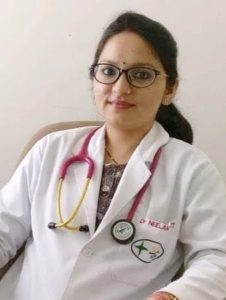
Dr. Neelam Bisht
BAMS, MD
Consultant Ayurvedic Physician
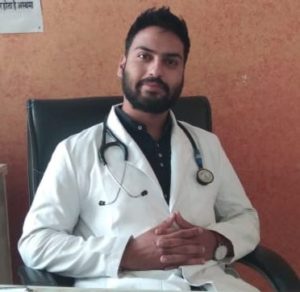
Dr. Rohit Bhatt
BAMS
Consultant Ayurvedic Physician
